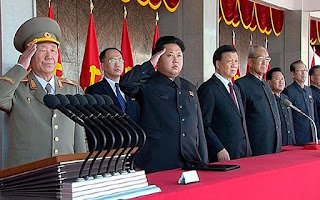Where are Africa’s young Spacefaring pioneers?
Where are Africa’s young Spacefaring
pioneers?
By E. Stanley Ukeni
A pioneer is a person or a group of individuals that are among a brave few who venture on a new endeavor that blazes trails for others to follow. In this emerging era of commercial space tourism, Africans needs to be on the forefront of experiencing outer space.
A pioneer is a person or a group of individuals that are among a brave few who venture on a new endeavor that blazes trails for others to follow. In this emerging era of commercial space tourism, Africans needs to be on the forefront of experiencing outer space.
For long now, the opportunity to experience life outside of
our planetary biosphere was only reserved for astronauts—who were almost all
non-Africans. Of cause in recent years, a rear opportunity for space travel was
opened up for the idle rich to experience outer space—as space tourists. This
incredible opportunity was made possible when, the Russian Space Agency—in an
effort to raise much needed funds to augment their unfunded operational costs,
began allowing non-astronauts to secure seats aboard the Soyuz—the Russian
Space Capsule, for a once-in-a-lifetime trip to the International Space
Station, for a tidy sum of twenty million dollars. A few lucky individuals took
advantage of this rare opportunity before the program was halted by the Russian
Space Agency, amidst a forceful chorus of protest from their international
partners.
This idea was eventually taken up by a number of private
venture companies who saw an unfilled demand for space tourism. One of those
companies is Space Exploration Technologies, which has developed and
successfully tested their Space X spacecraft—with a seven person crew capacity.
The company announced in 2012 that it would start ferrying non-astronauts into
space at the cost of twenty million dollars per seat. The Dragon space trip
will be a sort of Low Earth orbital flight into a 370-kilometer orbit—the first
of which is scheduled to lift-off by the middle of 2015.
Before anyone begins to argue that twenty million dollar is
a steep price to pay for a mere space holiday, they should factor in the
intangible benefit of inspiring a crop of new generation of African space
engineers who would be inspired to pursue a careers in rocket science and space
aviation—and perhaps advance a space industry here in Africa. And then of cause
there are the next generation spacefarers who would be inspired to follow in
the footsteps of the space trailblazers. I must add here that I am of the
opinion that space travel is a heritage of all humans, and as such Africans
must not be left behind this emerging age of space exploration.
Alright, perhaps twenty million is arguably a lot of money,
even for the growing number of idle rich individuals who can quite easily
afford the cost catching a ride aboard the Dragon Spacecraft; there are cheaper
alternatives in the near horizon. Intergalactic research and advancements in
commercial spacecraft technology have opened up cost-effective opportunities
for safe outer space travel experience for non-astronauts cost-conscious
individuals.
Companies like Virgin Galactic are pioneering outer space
flights a relatively affordable cost of Two Hundred and Fifty Thousand Dollars.
The Virgin Galactic Space Ship Two—featuring the state-of-the-art Astrobatic
cabin, has the capacity to ferrying six up to sixty-eight miles above the
earth’s surface. The maiden flight is scheduled for late 2013, and already many
young wealthy individuals from North America to Asia—driven by a pioneering
spirit, are signing up in droves for a space voyage ticket to experience this
unique space odyssey. Africans must not allow themselves to be left behind.
Although outer space tourism is still in the preparatory
stages of taking off, bookings for some near future space flights are currently
on-going. Interested individuals can probably book their trip online or through
the company’s accredited space tourism agents. The earlier the reservation is
booked, the quicker a candidate can venture on a space travel.
Copyright 2014-2015 © E. Stanley Ukeni. All Rights Reserved
Photo courtesy of NASA
Photo Courtesy of SpaceX





Comments
Post a Comment